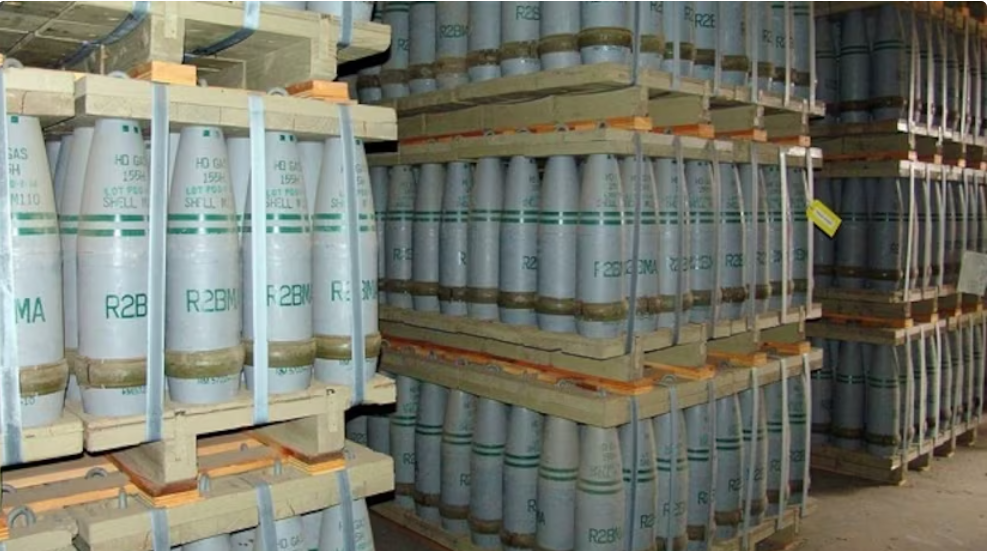US to destroy last chemical weapons, closing a deadly chapter dating to WWI
Published: 7 July 2023
via the Business Standard web site

Gas shells
The Weapons' Destruction Is A Major Watershed For Richmond, Kentucky And Pueblo, Colorado, Where An Army Depot Destroyed The Last Of Its Chemical Agents Last Month. It's Also A Defining Moment For Arms Control Efforts Worldwide
Workers at the Blue Grass Army Depot are close to destroying rockets filled with GB nerve agent that are the last of the United States’ declared chemical weapons and completing a decadeslong campaign

One of the hazards of the U.S. Marines, Sailors, and Nurses serving in the front-line area was chemical warfare. Within hours of contact, the chemicals would affect the eyes, causing blindness. Inhaled, it led to respiratory problems and eventually internal bleeding. On the skin, the chemicals led to blisters and burns. For U.S. Marines and Naval personnel serving in the areas, the service men were trained in the use of gas and the effects on the body. General John J. Pershing, USA, appointed Major General William L. Sibert, USA, to lead the Chemical Warfare Service in May 1918. During the war, close to 1,000 U.S. Marine officers and enlisted men were subjected to chemical attacks. In May 1926, France became the first signatory to sign the Geneva Gas Protocol, which condemned the use of chemical and biological weapons in war. Note, Germany signed the protocol in April 1929. (U.S. Naval History and Heritage Command)
Workers at the Blue Grass Army Depot are close to destroying rockets filled with GB nerve agent that are the last of the United States’ declared chemical weapons and completing a decadeslong campaign to eliminate a stockpile that by the end of the Cold War totaled more than 30,000 tons.
Read the entire article on the Business Standard web site here:
External Web Site Notice: This page contains information directly presented from an external source. The terms and conditions of this page may not be the same as those of this website. Click here to read the full disclaimer notice for external web sites. Thank you.



